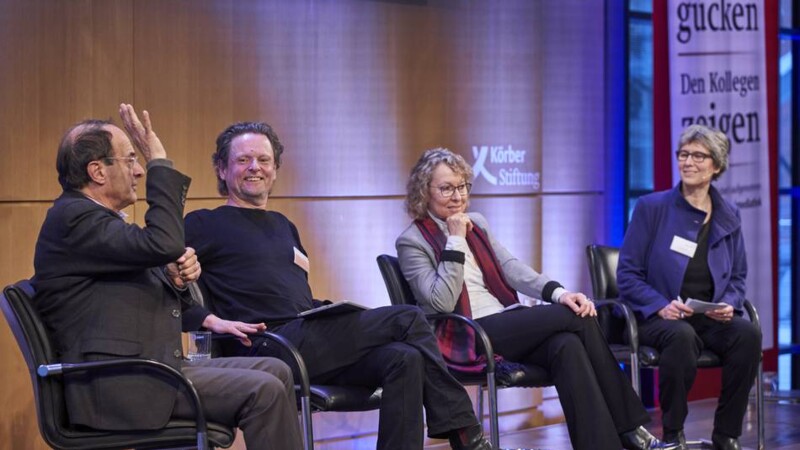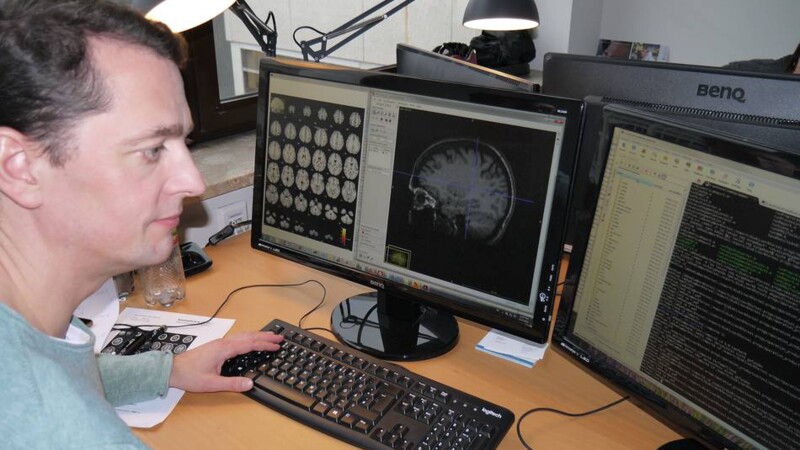Watson can analyse texts, images and audio sources swiftly and make the results available to people. “Who likes reading operating instructions in car manuals?,” asks Hildesheim. A chatbot developed with Mercedes-Benz also has augmented reality functions. A user simply points a mobile phone at the cruise control and the AI explains how it works. Insurance companies and banks are opting to use the increasingly professional chatbots as virtual agents. To this end, experiments are done with avatars so that customers can discuss their investment strategies face-to-face with the bank director. “This in turn results in numerous new job profiles,” said Hildesheim – from avatar or augmented reality designers to deep learning specialists, robot engineers and AI trainers.
“Yes, I’m definitely enthusiastic about AI,” said Dr. Wolfgang Hildesheim at an event in the Evangelische Akademie der Nordkirche in Hamburg in early April. However, such a reply from the head of IBM’s AI department comes as no surprise. Hildesheim, an elementary particle physicist, says China and the U.S. are the main drivers of this forward-looking technology at present. And if Germany were to take the lead, in accordance with the German government’s AI strategy, he believes: “We would retain control, create well-paid jobs, increase our effectiveness and thus our competitiveness.” Apart from all these benefits, AI can boost coexistence in virtually every area as the Watson cognitive system, developed by IBM, shows.
Chatbots in cars with augmented reality features
Watson in space
AI knows hardly any boundaries, as Watson recently proved. The Crew Interactive Mobile companion (CIMON) project consists of the world’s first flying, autonomous astronaut assistant. Developed on behalf of DLR Space Management and Airbus and built in Friedrichshafen and Bremen with funding from the German Ministry of Economics and Energy, CIMON uses the artificial intelligence provided by Watson. The goal was to make CIMON the first recognized and valued crew member of the International Space Station.
The medical-ball-sized technology demonstrator opened its eyes, as requested, on November 15, 2018 and said: “Hello! I’m your Space Companion. My mission is to support you.” CIMON can see, hear, understand and speak based on the expertise needed to assist astronauts with their experiments.
No signs of super AI
Although Hildesheim is enthusiastic about the rapid technological development, he bemoans the sceptical attitude toward AI. “The risks are overestimated at present and the opportunities underestimated.” Fears that AI could dominate human activities all over the world are unfounded, he opines. “What we are seeing today is so-called ‘weak AI’. These cognitive systems are geared to perform clearly defined tasks. No more and no less. But they can be used across the entire economy and can significantly support people.” AI is a worldwide super trend and will remain so. “All important innovations are based on AI or use the technology. So we need to invest more in this area,” he noted, as exemplified by IBM. About a third of its research activities focus on developing Watson even further.
Establishing AI@Hamburg
Hildesheim hopes to establish an AI ecosystem in Hamburg and held initial talks with the senate in early 2019. “The decisive factor here is that the city’s major organisations work together,” he explained, and noted the comprehensive approach spanning schools, universities, politics, administration and business. This should be extended to both established companies and the vibrant start-up scene with its committed digital companies under the theme “AI@Hamburg”.
ys/sb/pb
Sources and further information
Read the other parts of our AI series:
Part 1: Artificial intelligence – a tool not a mind
Part 2: jung diagnostics: Algorithms for MRI image analysis
Part 3: My colleague, the robot – a popular member of staff?
Part 4: Artifical intelligence – catalyst of positive future
Part 5: Humanoid robotics: Step by step towards normality
Part 6: Robotic cars to take to Hamburg’s roads?
Part 7: No need to fear artificial intelligence
Part 8: Hamburg to get Health AI Hub – start-ups joining forces
Watson
Dr. Wolfgang Hildesheim is head of the IBM Watson Group in Germany, Austria and Switzerland and works from Hamburg. Watson’s success on the U.S. quiz show Jeopardy 2011, when he beat his two human opponents by lengths, has had a profound impact on the understanding and classification of AI. Cognitive systems like Watson are versatile and support people across nearly every industry e.g. health care, as consultants for energy optimization and in fending off cyber attacks.
Similar articles

Artificial intelligence - a tool not a mind

